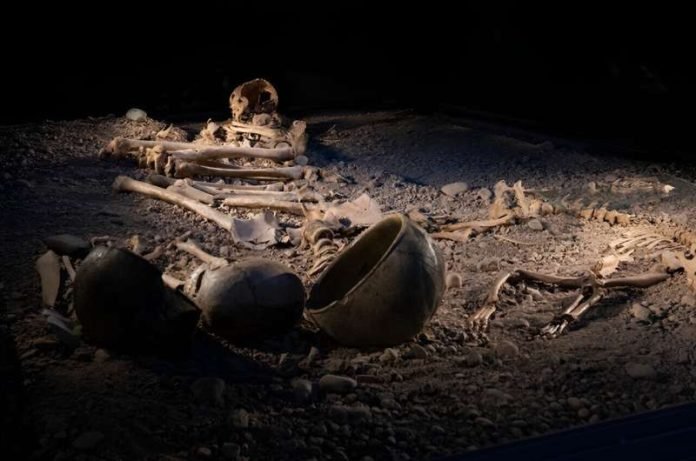
A new study published in Scientific Reports offers a glimpse into the challenges faced by Stone Age populations in Scandinavia, revealing how bacterial diseases, now easily treatable with antibiotics, once posed deadly risks.
Coordinated by the Center for Paleogenetics in Stockholm, this international research effort delved into the microbial world of our ancestors, examining 38 individuals from both farmer and hunter-gatherer contexts, spanning from Hummerviksholmen in southern Norway, dating back 9,500 years, to Bergsgraven in Linköping, Sweden, around 4,500 years old.
The study identified both benign and harmful microbes within these ancient individuals.
Among the pathogens uncovered were Neisseria meningitidis, which spreads through close human contact such as kissing; Yersinia entercolitica, typically contracted from contaminated food and water; and Salmonella enterica, a well-known cause of modern food poisoning.
One striking find was in the Battle Axe culture burial site of Bergsgraven, where two individuals were discovered to have been infected with Salmonella enterica, suggesting that this might have been the cause of their death.
Nora Bergfeldt from the Department of Zoology at Stockholm University, who is researching bacterial diseases in prehistoric societies, emphasizes how diseases easily cured today could have been lethal in the past.
The shift from hunting and gathering to farming introduced new health challenges, as increased human interactions provided more opportunities for infections to spread.
However, the study also noted that infections spread through food were prominent across different lifestyles during the Stone Age.
Helena Malmström from the Human Evolution Program at Uppsala University, who has extensively researched the transition from foraging to farming, points out that this lifestyle change’s impact on general health is still a subject of study.
Anders Götherström, who leads the research project, highlights the significance of being able to explore aspects of prehistoric societies previously inaccessible to researchers.
This study not only sheds light on the ancient origins of diseases that affect humanity today but also emphasizes the transformative impact of antibiotics on human health and survival.
The findings illustrate the harsh realities faced by our Stone Age ancestors and underscore the importance of understanding the evolutionary dynamics of diseases to appreciate the advances in modern medicine.
The research findings can be found in Scientific Reports.
Copyright © 2024 Knowridge Science Report. All rights reserved.



